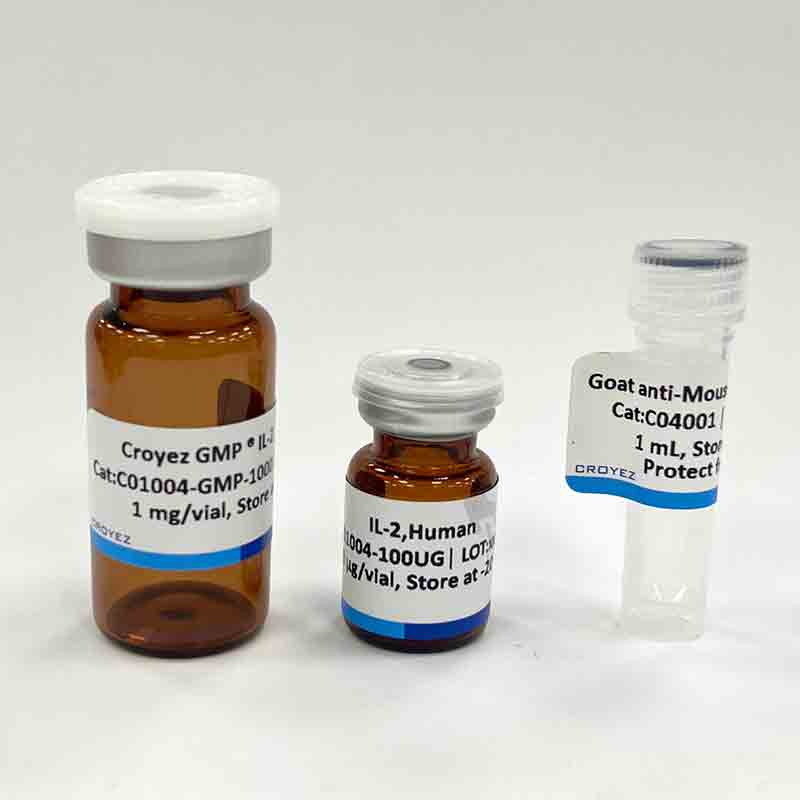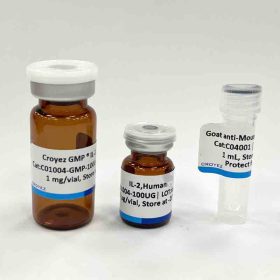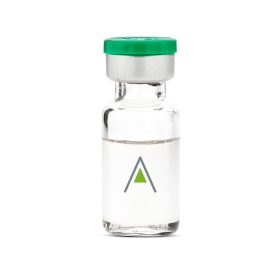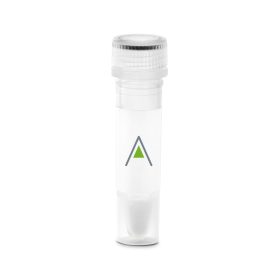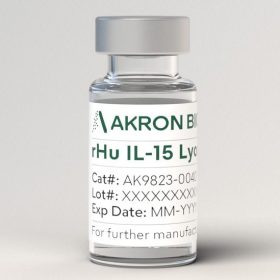CXCL4, Human
CXCL4, also known as platelet factor 4 (PF-4), is one of the most plentiful platelet chemokines.Depending on the cell type, CSCL4 may has several biological functions. CXCL4 is mainly produced in megakaryocytes, released from the α-granules of platelets as a tetramer at micromolar concentrations depending on platelet activation. CXCL4 has both procoagulant and anticoagulant activities, thereby can bind heparin and neutralize the anticoagulant effect of heparin. In addition, CXCL4 also have functions such as inhibiting factor XII, and vitamin K dependent coagulation factor, and stimulating activated protein C generation. As a strong tumor inhibitor, CXCL4 can inhibit endothelial cell migration, proliferation, and in vivo angiogenesis through interfering with the angiogenic effect of growth factors such as FGF and VEGF.
Sequence:
EAEEDGDLQCLCVKTTSQVRPRHITSLEVIKAGPHCPTAQLIATLKNGRKICLDLQAPLYKKIIKKLLES with polyhistidine tag at the N-terminus
Source:
Escherichia coli
Endotoxin Test:
<0.1 EU per 1 μg of the protein by the LAL method.
Activity:
Measure by its ability to inhibit human FGF-2-induce proliferation in HUVEC cells. The ED50 for this effect is <5 μg/mL.
Purity:
>98% as determined by SDS-PAGE. Ni-NTA chromatography
Formulation:
The protein was lyophilized from a solution containing 1X PBS, pH 7.4.
Reconstitution:
It is recommended to reconstitute the lyophilized protein in sterile H2O to a concentration not less than 100 μg/mL and incubate the stock solution for at least 20 min to ensure sufficient re-dissolved.
Storage:
Lyophilized protein should be stored at -20°C. Upon reconstitution, protein aliquots should be stored at -20°C or -80°C.
Note:
Please use within one month after protein reconstitution.

 简体中文
简体中文 繁體中文
繁體中文 English
English 한국어
한국어 ไทย
ไทย